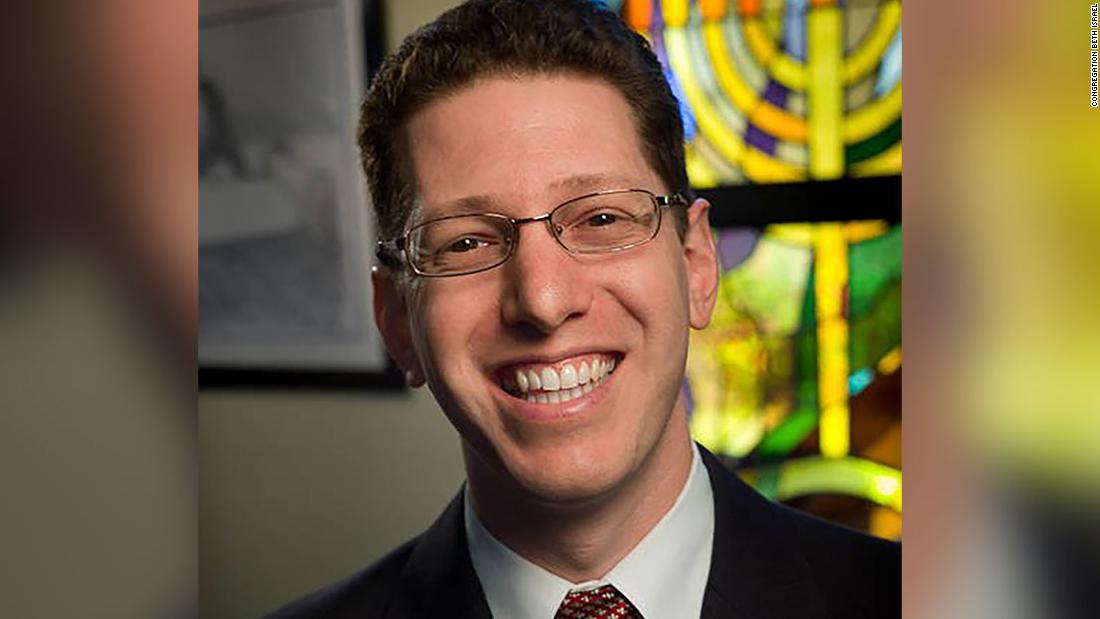How Rabbi Charlie Cytron-Walker’s training helped fellow hostages survive the Texas synagogue attack
On Saturday, a stranger knocked on the door of Congregation Beth Israel in Colleyville, Texas. The rabbi, assuming the stranger needed shelter from the cold, invited him in and made him tea, Cytron-Walker told CBS on Monday.
But moments later, the stranger made clear he had a gun and took the rabbi and three others hostage. The ordeal dragged on for 11 hours, and the crisis was starting to deteriorate.
“In the last hour of our hostage crisis, the gunman became increasingly belligerent and threatening,” Cytron-Walker said a statement provided to CNN.
“Over the years, my congregation and I have participated in multiple security courses from the Colleyville Police Department, the FBI, the Anti-Defamation League, and Secure Community Network,” Cytron-Walker in the written statement.
“We are alive today because of that education.”
“I encourage all Jewish congregations, religious groups, schools, and others to participate in active-shooter and security courses,” Cytron-Walker said.
“Without the instruction we received, we would not have been prepared to act and flee when the situation presented itself.”
How the daring getaway unfolded
Several hours into the crisis, one hostage was released — leaving the rabbi and two men in the synagogue with the gunman.
For the next four hours, Cytron-Walker and the other hostages had no idea when the gunman might start shooting.
“It didn’t look good. It didn’t sound good. … We were terrified,” the rabbi told CBS.
But he remembered his security training and waited for the right time to make a move against the gunman.
“When I saw an opportunity where he wasn’t in a good position, I asked (and) made sure that the gentlemen who were still with me, that they were ready to go. The exit wasn’t too far away,” Cytron-Walker told CBS.
“I told them to go. I threw a chair at the gunman and I headed for the door. And all three of us were able to get out without even a shot being fired.”
While it was his bold move that helped the hostages escape, Cytron-Walker credited law enforcement and the security training.
“I am thankful and filled with appreciation for all of the vigils and prayers and love and support, all of the law enforcement and first responders who cared for us, all of the security training that helped save us,” Cytron-Walker posted on Facebook on Sunday.
A history of helping others
He later became assistant director of the Amherst Survival Center in Massachusetts, which housed a food pantry, free store and soup kitchen for those in need.
In Texas, Cytron-Walker is well known for his outreach to community members — regardless of their background or religion, local leaders said.
The Islamic Center of Southlake said Cytron-Walker brought sweets to their Eid festival and attends festivities during the Islamic holy month of Ramadan, former center president Shahzad Mahmud said.
Mahmud said the rabbi and his wife have been friends of the Islamic center since “day one.”
Cytron-Walker said his rabbinic training helped him remain calm during the 11-hour crisis.
“As a part of training as clergy, we talk a lot about the idea of being a calm, non-anxious presence,” he told CBS. “We do that in hospital rooms. We do that during the most difficult of individual moments. And I did the best I could to do that throughout the standoff.”
CNN’s Carma Hassan, Eliott C. McLaughlin and Kacey Cherry contributed to this report.
![]()


